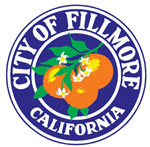|
Fillmore City Council Sued for Brown Act Violations
By Anonymous — Wednesday, September 23rd, 2009
 City of Fillmore A Petition for Writ of Mandate, Injunction, and Declaratory Relief for violations of the Ralph M. Brown Act has been filed on behalf of the citizens of Fillmore by Petitioner Richard P. McKee, an individual. The petition alleges an e-mail sent to Councilman Steve Conaway by Mayor Patti Walker, August 25 of 2009, “revealed a Brown Act violation by a majority of the City Council through a serial meeting arranged and facilitated by Interim City Manager Larry Pennell.” At the regular council meeting, August 25, Mayor Walker announced that a closed session (not on the agenda) would be held concerning a Brown Act violation charged in an August 25, letter from Councilman Conaway to City Clerk, Clay Westling. The alleged violation concerned a serial meeting between three council members, which was arranged by Interim City Manager, Larry Pennell. Pennell sought, and obtained, concurrence of thought from a majority of the city council. In his letter Conaway stated that “As a council member, I expect that the City Manager will conduct business fairly, openly and with the highest ethics. Sadly, Mr. Pennell’s actions resulted in implicating three of my council members in this Brown Act violation.” Conaway continued: “As a result of the serial meeting, the trust installed upon Fillmore officials will b e diminished. When this issue came to my attention I urged Mayor Walker to not act on the ill-gotten information. She chose to do otherwise. At this time I am seeking a demand for cure for the violation.” Mayor Walker took the council into closed executive session at the August 25 meeting, stating that the reason for the closed session was the letter from Conaway to Westling, regarding a Brown Act violation. The council voted unanimously to add the closed session to the agenda, and recessed for that purpose. Mayor Walker, at the conclusion of the closed session, announced that “an unintentional Brown Act violation has occurred, which caused no significant consequences, and the matter is now closed.” Petitioner McKee challenged the council’s conclusions in a letter presented August 31, 2009. McKee charged that the closed session was an “improper secret discussion” asking assurance from the council that no further improper closed sessions would occur. City Attorney disagreed with the Petitioner, claiming that the procedure in question was proper and not a violation of the Brown Act. After requesting and receiving a copy of the video for that meeting, Petitioner was confirmed in his belief that the meeting was not proper under the law. “The Brown Act demands openness, unless express authority for secrecy is provided within the Act.” The Petition asks the court “to hold and declare that Respondent City Council violated the Brown Act by: taking action to add an item to a posted agenda when the item was known to the City prior to the posting of the agenda and did not require immediate action; holding an anticipated litigation closed session, and including the opposing party to that anticipated litigation, so there could be no prejudice to the position of the City in future litigation if the discussion had been held in an open meeting; claiming to hold a closed session pursuant to Section 54956.9, but failing to announce the subdivision authorizing the closed session; adding an item of business to the meeting agenda, and discussing and acting upon that item, without providing members of the public the opportunity to comment directly to the City Council prior to completing the discussion of and taking action upon the item. ; failing to report the vote of each Council member on the action taken in closed session. Paragraph 49 of the Petition reads: Petitioner also makes the following Demands: To cure Brown Act violation 54954.2, a demand is also made that the Council “shall, within the next 30 days, rescind the action taken to increase the pay of Interim Financial Director Leonore Young by 5%” |
